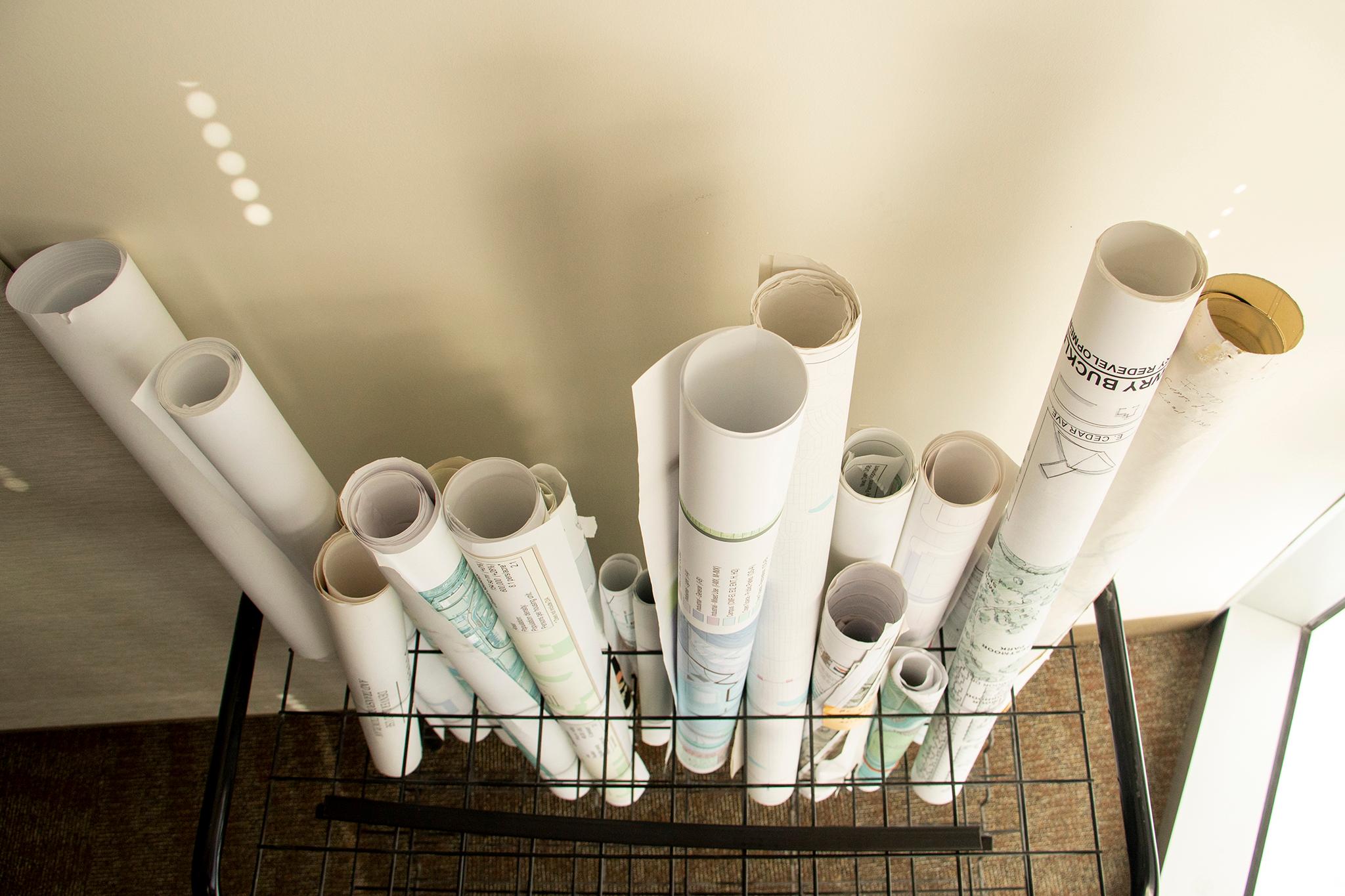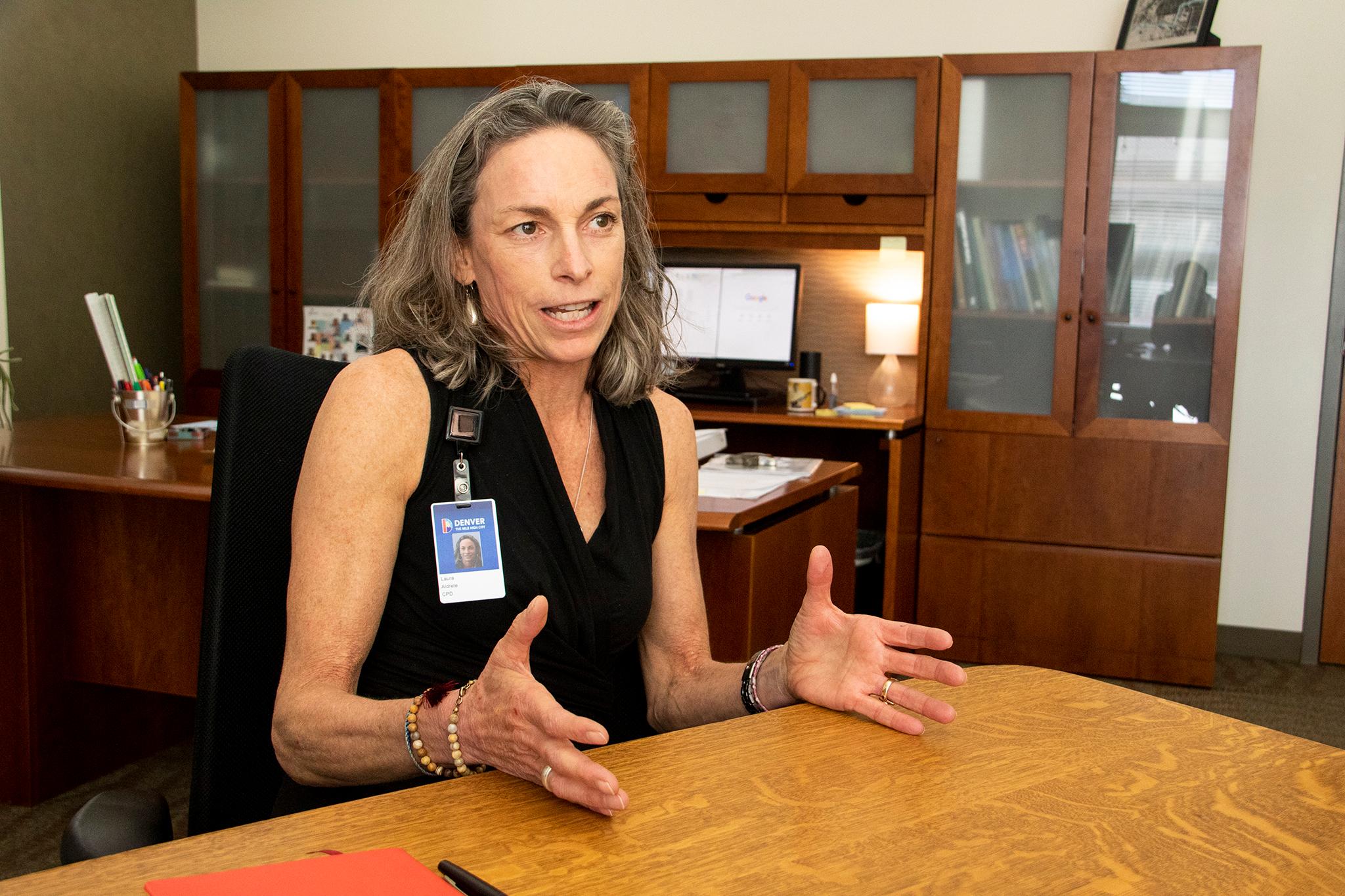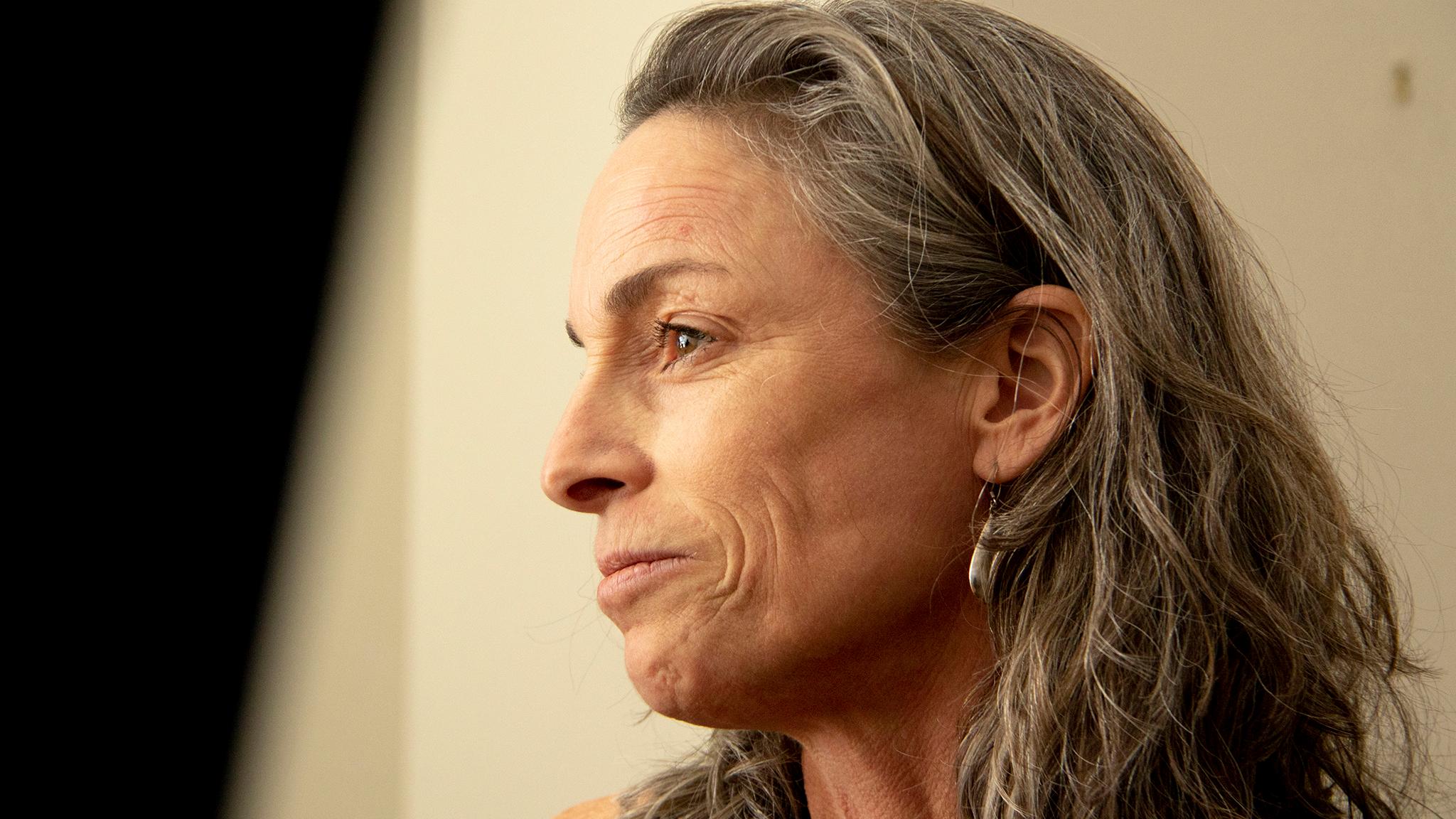How Denver looks and feels doesn't happen by accident. Everything that gets built goes through Denver Community Planning and Development at some point. Its reach extends from high-rises and transit to climate change and culture.
The Hancock administration went without a permanent executive director of the planning department for more than a year before hiring Laura Aldrete last week.
Aldrete, who was raised on the Northside, has spent her career gliding between the private and public sectors. She comes to CPD from Denver International Airport where she helped forge its real estate development arm. Prior to that post, she worked for planning firms PB Placemaking and Matrix. And before those jobs, she worked for the mayor's office on developing Stapleton and for the Denver Urban Renewal Authority.
Now she'll be in charge of how Denver grows.
Planning director is a powerful government post -- the most important position "in terms of vulnerable communities and our communities of color" according to former city councilman Albus Brooks.
"If our planning director in 1990 could have been thinking about gentrification and how to be thinking forward about community investment ... we would've been seeing a much different reality today," he said.
The politician-turned-affordable housing developer likes the hire for a lot of reasons, including Aldrete's lens as a woman of color.
Aldrete's post is probably the third most powerful job behind the mayor and the public works chief by architect and former city councilman Rafael Espinoza's estimation. He believes Aldrete's hire was more about expediting the airport expansion and less about neighborhoods.
"(The position) is getting used in a very powerful way but not necessarily the way in which the general public wants it," said Espinoza, who is a major critic of the administration. "The power is there. It's how it's bestowed on them by the mayor's office that matters."
Politics aside, the planning director is charged with implementing Blueprint Denver, the 20-year plan for growth, transportation and development. She'll oversee the 16th Street Mall renovation and play a role in the airport expansion, but is also partly responsible for what your block looks like -- whether it's filled with affordable duplexes or luxury apartments. It's a big job!
On just her second day on the job, the city's first Latinx planning director sat down with Denverite and introduced herself.
Denverite: Why did you take this job, and what were you doing at DIA's real estate office that translates to this job?
Laura Aldrete: I think it's really about the compendium of my career. My first job back in Denver was with a design firm and it was really learning about the vision. I stepped into a charette where we had the lender, we had the Denver Urban Renewal Authority, we had the engineers, the developer. And I suddenly realized that as a planner for me to come in and help create city, it actually was not just the brilliance of a planner, but it's actually the engineer, the lending community, the developer. If it's partly publicly financed, that's a component. I think the course of my career has been about, how do I go out and understand what it takes to build something out of the ground? And so I think DEN Real Estate was a piece of that.
Denverite: I don't know of any big projects happening on that land, right? Are there any?
Aldrete: It's a big haul, right? And as you know, development takes a long time. Just regular development, right? You've got to get the piece of land under control. You have to go through entitlements. You gotta secure the lending, you gotta get the contractor, you've got to build it, and you've got to hit the market. So we created a brand new department of real estate within aviation.
Denverite: That was part of your job?
Aldrete: Yes, building that department and then creating a vision.
Denverite: How do you describe what it is that you will do as the planning director? What do you tell the average person who asks what your job is?
Aldrete: I think it's continuing the leadership and helping to support the leadership of this administration in the vision of city building. And that's really at a scale from a neighborhood, your streets, the block that you live in, to the really important, seminal city-building projects that we need to ensure we move forward with good design that has the greatest equity for all.
So 16th Street Mall, for instance. How do we make sure that it is a place for everyone to be? How do we make those living rooms within that corridor for young and old people of different socioeconomics, people of different backgrounds to all come together. The key point of city-building is creating places for everyone to come together in a safe place.
Denverite: From a reader: Registered neighborhood organizations don't represent the entire city or the entire neighborhood even, but they have a loud voice. How do you navigate public comment sessions where vocal but likely a non-representative group of people will continuously advocate for their own perceived short term interests while you're trying to plan for decades in the future?
Aldrete: Well, I think you need to find different tools to ensure a wide range of community engagement. Community responsiveness and participation doesn't just come through registered neighborhood organizations. On Day 2 I can't tell you exactly what our department is doing, but based on the performance that I've seen this department do with the Comprehensive Plan and Blueprint Denver and really pushing new ways to engage literally thousands of people, I think that we are well on our way of doing that. Can we do more? Yes.


Kevin J. Beaty
Denverite: So you see that model as a good start.
Aldrete: We are a social science and so it is always about what did we learn, how do we improve upon that? What are the best practices we're seeing across the country? Let's go out and do it better.
Denveite: Blueprint Denver is a document that will shape the next 20-plus years of growth. You'll be in charge of implementing it. Do you think it set you up to succeed?
Aldrete: For the first time, we really started looking at socioeconomics, which was groundbreaking. So I think it has taken a huge leap to move to the next level. And again, that's this focus going back to equity. I think we're starting to tease that out and ask those questions that are oftentimes more qualitative. So I think it's been very successful in terms of moving us down the road where we want to move, considering the growth that is happening in this city.
Denverite: Would you give that same answer to someone who's been displaced from Denver? Because equity is something that the city talks about a lot, but I think it's hard to tell people that who've been personally disaffected.
Aldrete: Yeah. Are we a hundred percent successful? Absolutely not. I mean, the plan was just approved in this past year, right? So it's about having a plan approved and having it go into effect and having to develop tools to prevent displacement. That's what I think what we're developing now or as a city. Has displacement happened? Yes.
Denverite: The vast majority of Denver allows only single-family homes, meaning there's not as much room for denser types of homes and the people who want to live in them. Does Denver still have exclusionary zoning?
Aldrete: I think I would ask that question a little bit differently. I think it is a question about how do we want to grow into our future and what are the best ways for us to utilize our neighborhoods to do that. It goes back to the equity, right? This needs to be a city for everyone. And if there is zoning that is preventing that healthy growth in a way where density is not aligning with transit corridors then I think those are places we need to look.
Denverite: Some people believe development automatically leads to gentrification and displacement. Can you tell people why that's either true or not true?
Aldrete: I don't know that I can tell people whether that's true or not. It's complicated. I think it's more than just buildings. I would say it would be about pace, the pace at which change happens and development happens.
Denverite: What is your favorite city to visit and why?
Aldrete: Mexico City. Because for a city of 20 million, you find places where it doesn't feel like 20 million. You also find there their willingness to experiment with pushing different modes of transportation. I mean, they have a great bike network. They have ciclovía on Sundays. They have a new, amazing bus rapid transit system. They're mixing new development with old development. And the food is amazing.
Denverite: This one's from a reader: What are you doing to encourage more Taco John's in the city?
Aldrete: Was that from my husband? It's gotta be. He loves Taco John's.
Denverite: Also from a reader: How do you manage high density and the need for more housing while still maintaining neighborhood character?
Aldrete: I don't think it's a simple answer. Bigger buildings don't have to mean you lose character because I think there's a number of ways to fix it. How are you representing the history of the place in the new development? How are you ensuring that tree lawns or trees are being saved or enhanced?
Denverite: Do you identify as a member of the Latinx community? How do you think that affects your perspective?
Aldrete: Yes, I'm biracial. My father's Mexican, my mother is from North Denver, essentially, but there's some Kansas in there. So I grew up in two places. So I always had to be able to switch and I always had to be able to understand that there was always another way of seeing things or doing things. And so I think that, I've just always carried that with me. I'm very cognizant that a big chunk of Colorado was part of Spain and Mexico and we have a very large Latino population here. And so I think about ensuring that we continue that history and culture in context of the city of Denver as we move forward.
Denverite: Were there ever times when you were in private practice working with Community Planning and Development when you thought you would do things differently, if only you were in charge?
Aldrete: That's the advantage of going back and forth between public and private sectors is you really understand both roles. So I think I have actually a lot more patience for the public sector. And on the private side it's, it's a tango here, right?
Denverite: Does the planning department have a major role in climate change in the city?
Aldrete: Well, I think moving forward, we are beginning to work on the green building ordinance. That's the first step. And that's really given us the whole city an awareness of needing to move more quickly in that direction.












